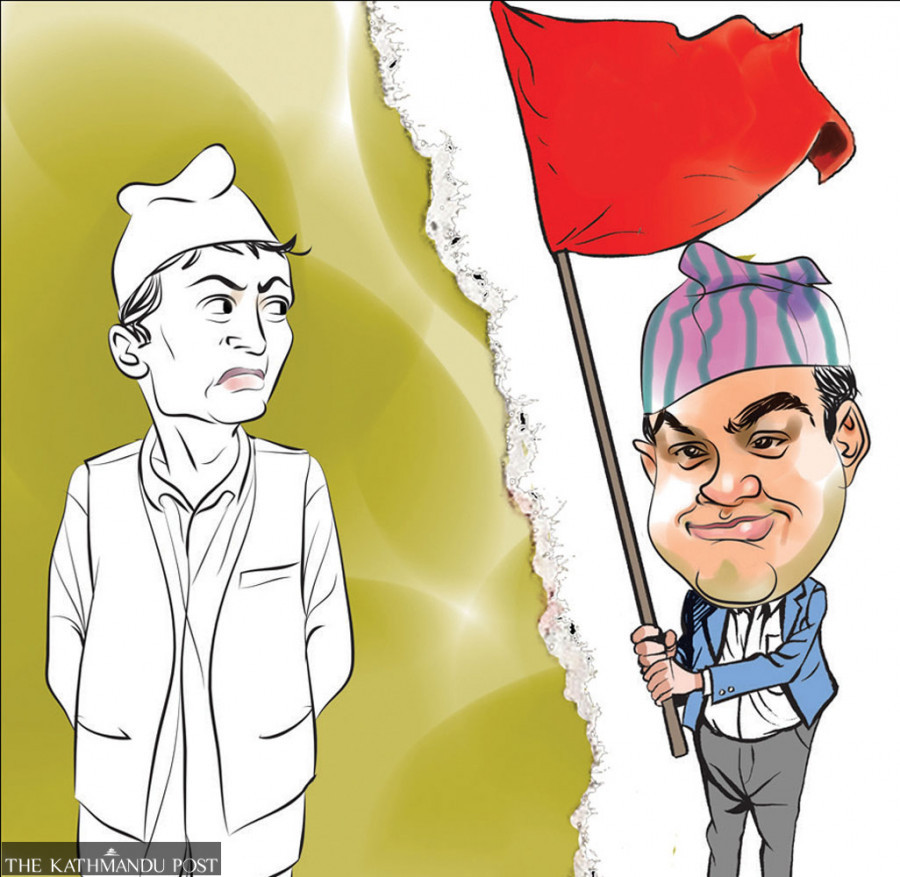Editorial
Politics for what?
We hardly hear top leaders of major parties speak about people's problems and ways to solve them.
The elections to the three levels of the government are well behind, but a fourth is round the corner. Nearly every political debate in the country today is focused on the presidential election slated for next month. The election is proving to be a ‘do or die’ event for major parties as its repercussions go beyond the individual who becomes the next President. The final choice of candidate could make or break the current government. The coveted position has brought the who's who of the country to the highly competitive political market, where ideals, morals and ethics both leaders and public personalities alike long professed are being traded.
Nepali politics has for the past decade and half been focused on elections and the making and breaking of governments. In this perpetual politicking, issues of governance have been sidelined, and people’s desires and rights have become a casualty. The calculations of political leaders are centred almost entirely on how to get to power and once there, to prolong the stay. And as leaders expend all their resources in this race, it is as if people’s concerns have become irrelevant. For the citizens, democracy has been reduced to choosing leaders through periodic elections; for the leaders, into a race to Singha Durbar and other centres of state power. Between people’s aspirations and leaders’ choices lies a crevasse impossible to cross, impeding the democracy’s ability to deliver and leaving the country in an impasse.
The power to vote and choose government is only the first step towards democratisation; the essence of democracy is felt only when the government formed on the foundation of people's votes fulfils its duty towards the people. The constant state of politicking—in the run up to elections, and then to make and break governments—completely overshadows the issues of service delivery, including in vital areas like education, health, and people’s overall wellbeing. As a result, they become prisoners of politicians' egos and selfish desires and lose their freedom. Philosopher-economist Amartya Sen in his book Development as Freedom lists five kinds of instrumental freedoms that help people live the way they want: political freedoms, economic facilities, transparency guarantees, social opportunities and protective securities.
It is as if none of these freedoms is available to Nepali citizens. Particularly poignant today is the absence of the final category of freedom—protective securities—forcing people overburdened with loans to kill themselves even as the government fails to do anything concrete to solve their problems. The way millions of people across the country have taken out loans at exorbitant interest rates for daily survival is a manifestation of the state’s failure to guarantee this most basic sense of freedom.
We hardly hear top leaders of major parties speak about people's problems and ways to solve them. Moreover, the failure to ensure full tenure of government means a situation of perpetual temporariness of plans and policies they bring. This mad race to power is in all likelihood going to continue well after the presidential elections. The people, as always, will be condemned to scramble for livelihood in absence of sustained efforts to deepen democracy.




 13.12°C Kathmandu
13.12°C Kathmandu














